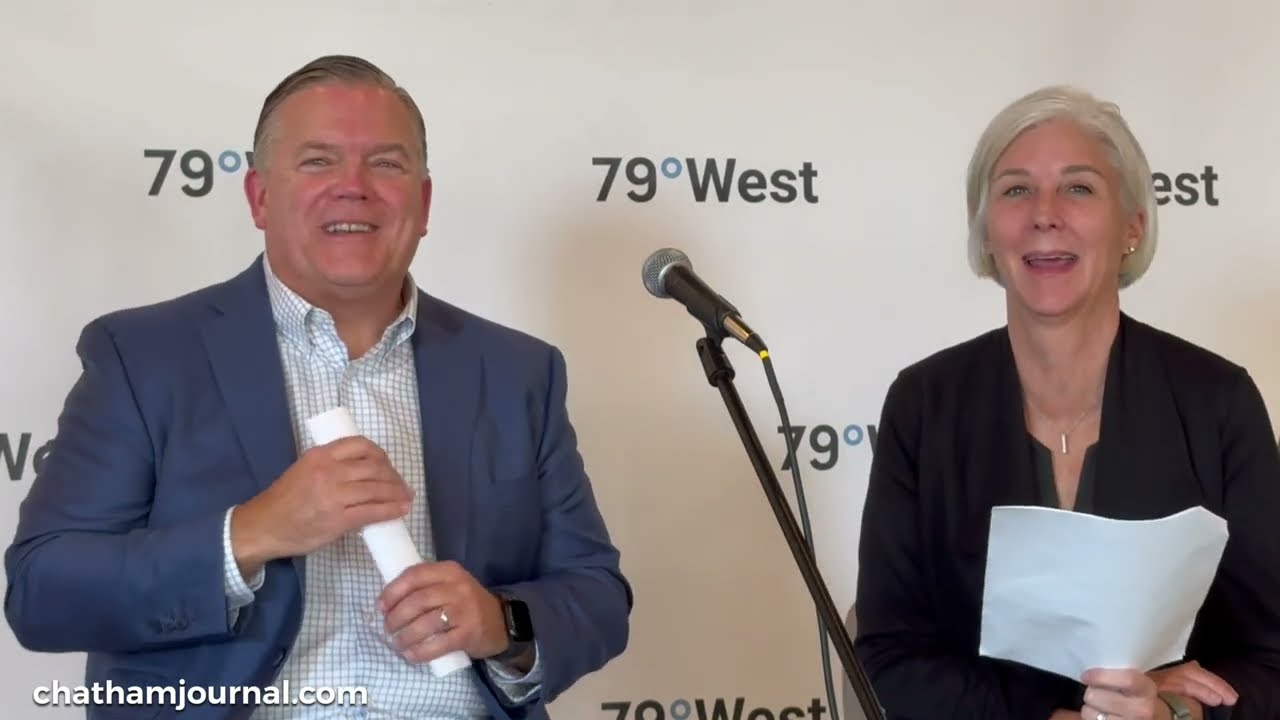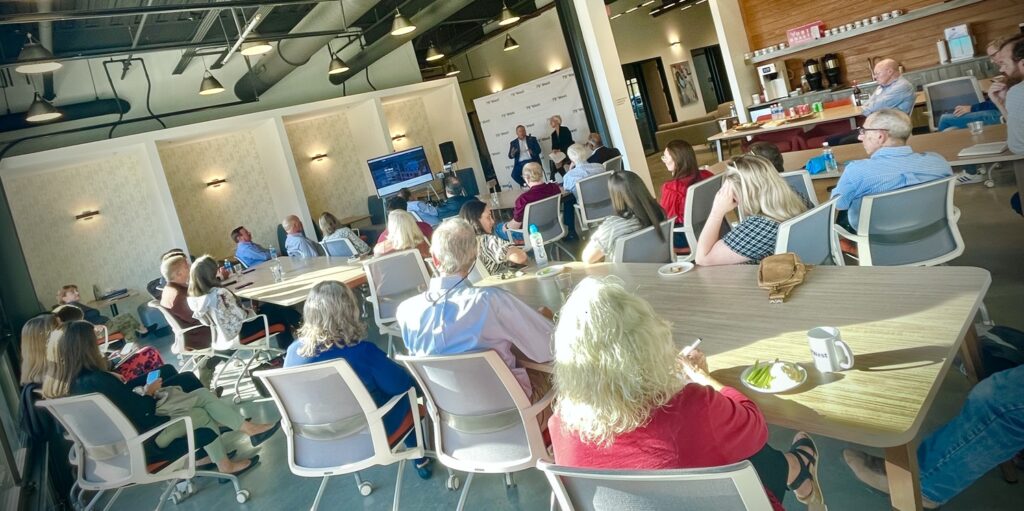
At a recent fireside chat at 79° West Innovation Hub, Research Triangle developer and University of North Carolina Board of Governors member Kirk Bradley shared insights on the future of North Carolina universities, innovation and growth in the Triangle’s rural areas.
Bradley, Chairman, President, and CEO of Lee-Moore Capital, is award-winning developer recognized as one of North Carolina’s most influential people in business.
Bradley fielded wide-ranging questions from Sheryl Waddell, director of economic development and innovation hubs for Innovate Carolina, the University of North Carolina at Chapel Hill’s initiative for innovation and entrepreneurship.
From university labs to commercial success
Waddell asked Bradley why North Carolina continues to rank 20th in innovation nationally, despite having a world-class university system and other advantages.
Bradley pointed to the lack of regional networks to support companies commercializing the research ideas born on the state’s university campuses.
To remedy that gap, he explained, the North Carolina General Assembly recently allocated $500 million over two years to allow for the nonprofit NCInnovation to create regional hubs at four North Carolina universities – UNC Charlotte, Western Carolina, East Carolina and N.C. A&T. The goal is to connect industry, capital and academia to turn more researchers’ ideas into commercial successes.
“We want to try to create incentives, so we would get East Carolina, A&T, NC State and Carolina working together to … take this research and create more companies, and then hopefully have those companies stay and locate here and move out ultimately to our rural and urbanizing counties,” Bradley said.
Once NCInnovation is fully funded, the plan is to distribute about $100 million annually in applied research grants to get companies through the so-called “valley of death” that occurs as startups attempt to take new technologies from the lab and into commercial production, Bradley said. On a nine-level federal technology readiness chart, that valley occurs from level three through six.
The grants “will be specifically targeted at those areas at our campuses to get them through that valley of death and get people from a two all the way to a seven, so that then (they) can get into … angel funding and all the things that ultimately lead to company formation,” Bradley said.
What’s next? Jobs.
Bradley also talked about the future of Chatham County in the wake of recent growth. He pointed out that with companies such as VinFast and Wolfspeed developing manufacturing facilities in the county, more jobs will come – and not just the 9,000 direct jobs that they are directly creating.
He pointed to a model from NC State University economist Mike Walden that projects that for every direct job, three or four indirect jobs follow.
“Now some of those are suppliers, but they are everything,” Bradley added. “Here … you try to get an appointment at a pediatric dentist, there are no available slots. So we need dentists, we need cosmetologists. We need just about everything here in this community.”
Smart growth is planned growth
Amid this growth, Bradley says he sees the 8,500-acre “live, work, play and learn” community of Chatham Park as an advantage for Pittsboro. By planning the area “on a large palette,” the town will gain open space, 30 miles of trails, pollination stations and what Bradley characterized as “the best developed park system of any community in the state when this place is built out.”
“You talk about smart growth–20 years from now this will be the community that people from all over the country will come to and say, ‘How did this happen?’” he said. “It didn’t happen by accident. It took planning and patience and capital and a lot of energy (from) a lot of people in this room to make it happen.”


